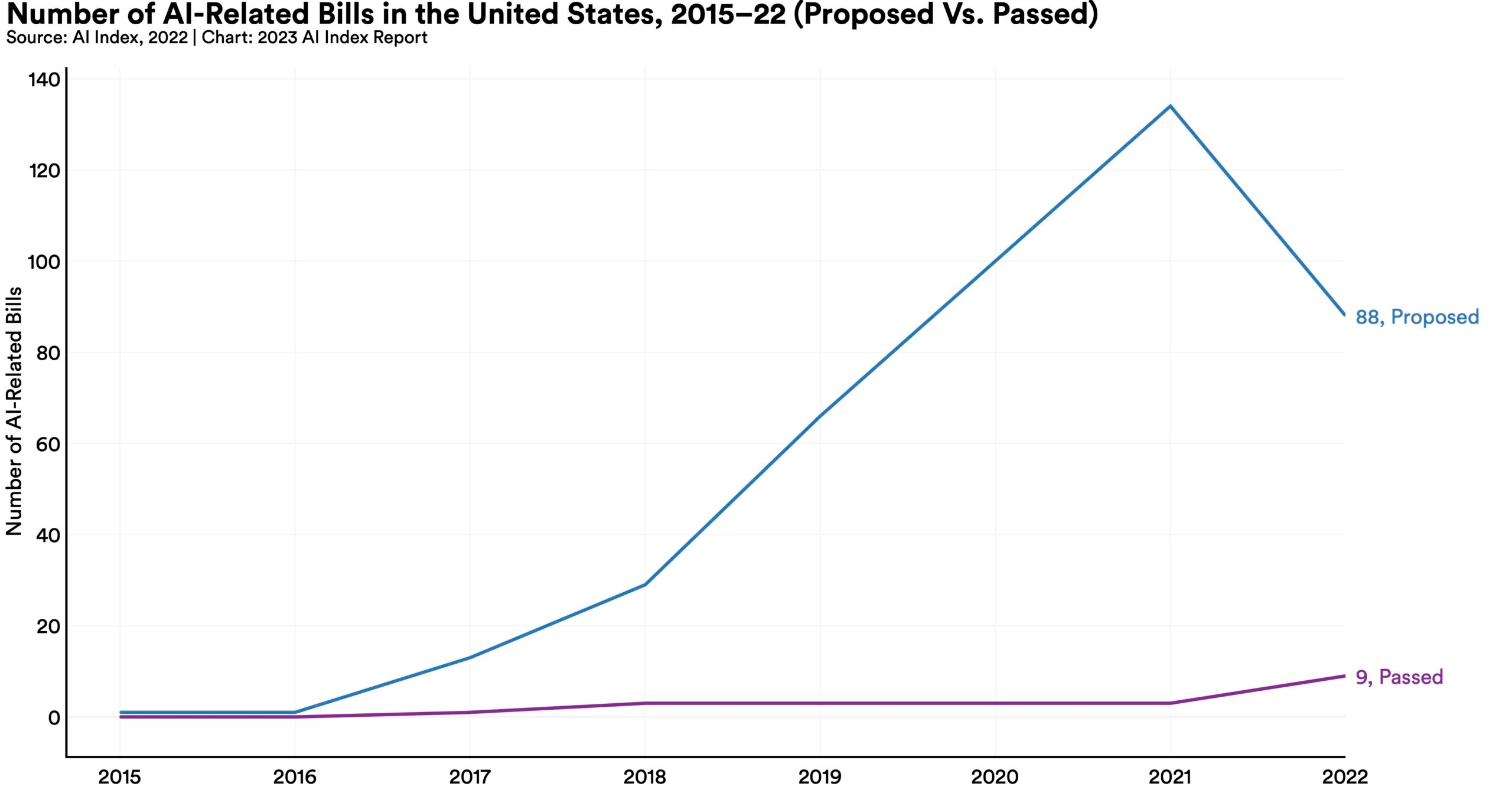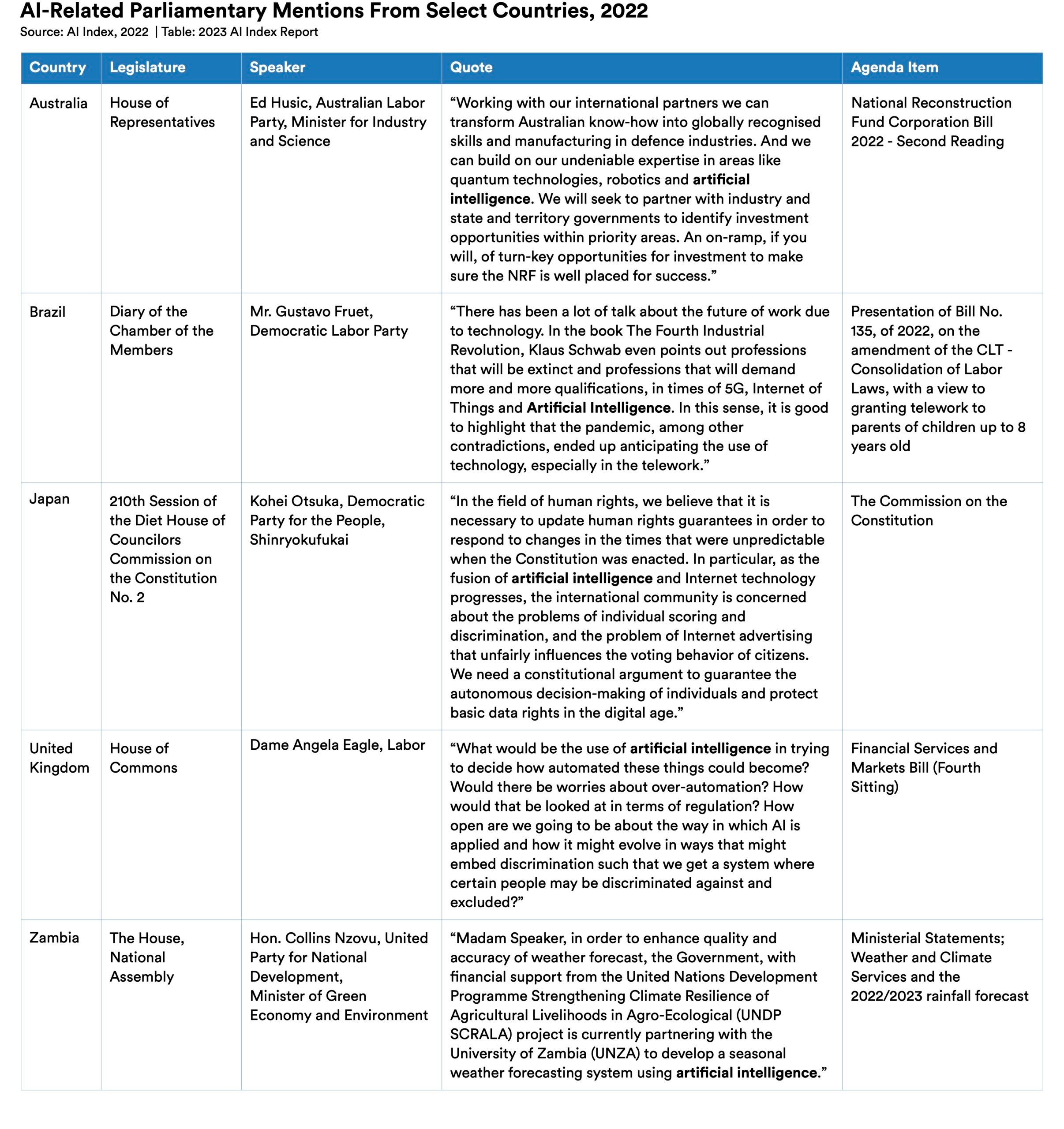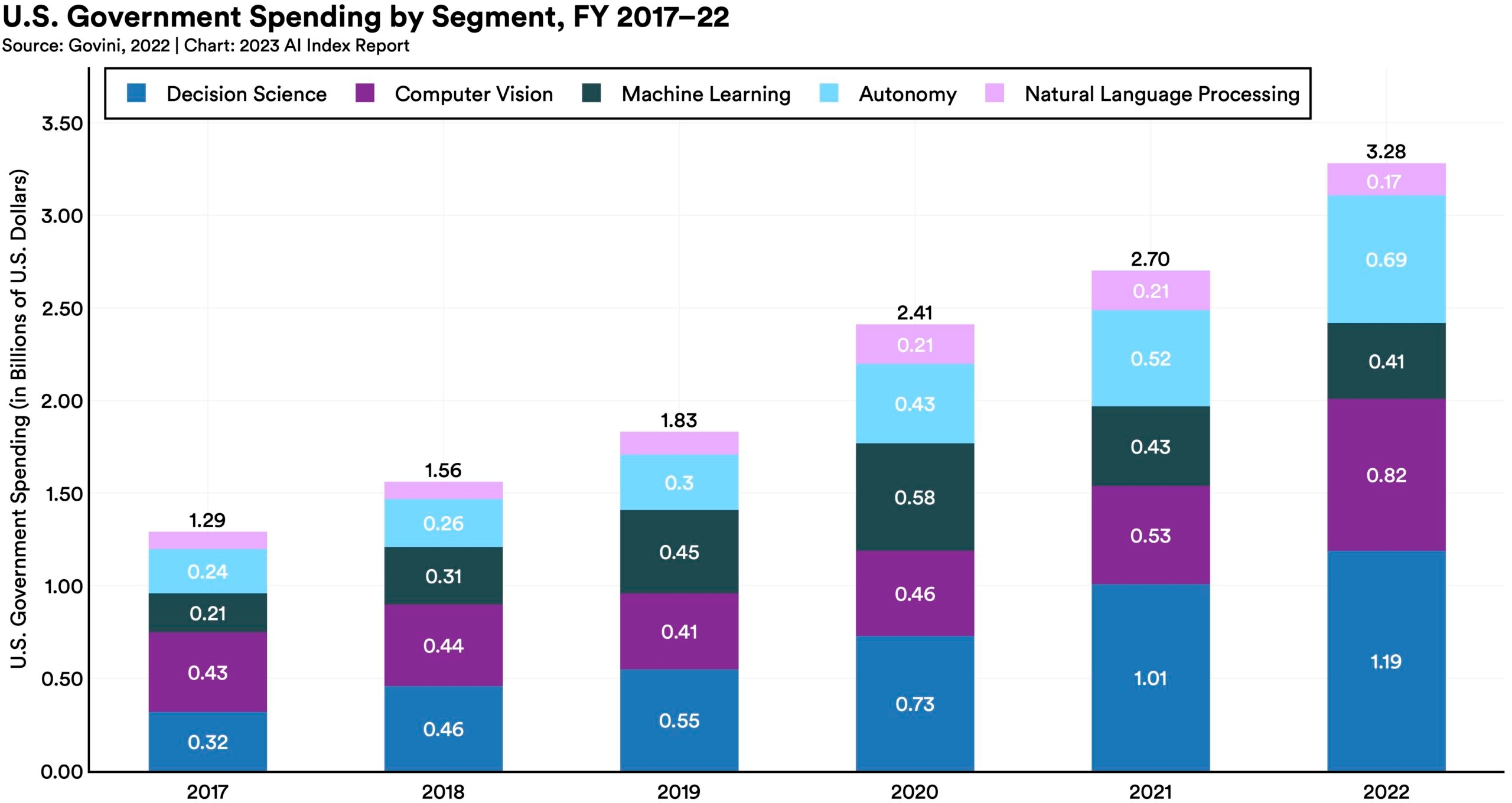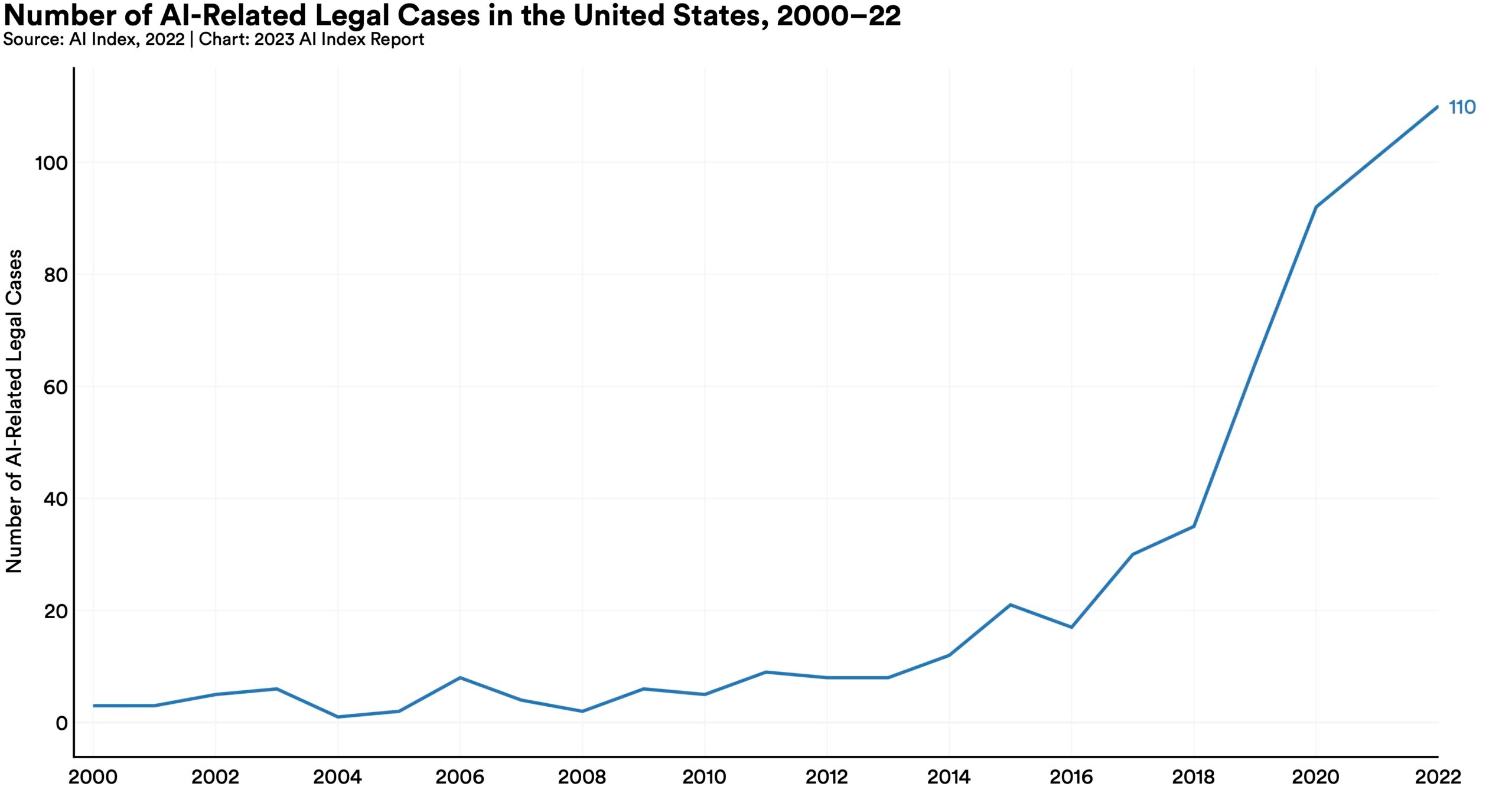
Get the latest news, advances in research, policy work, and education program updates from HAI in your inbox weekly.
Sign Up For Latest News
From talk to enactment — the U.S. passed more AI bills than ever before.
In 2021, only 2% of all federal AI bills in the United States were passed into law. This number jumped to 10% in 2022. Similarly, last year 35% of all state-level AI bills were passed into law.

When it comes to AI, policymakers have a lot of thoughts.
A qualitative analysis of the parliamentary proceedings of a diverse group of nations reveals that policymakers think about AI from a wide range of perspectives. For example, in 2022, legislators in the United Kingdom discussed the risks of AI-led automation; those in Japan considered the necessity of safeguarding human rights in the face of AI; and those in Zambia looked at the possibility of using AI for weather forecasting.

The U.S. government continues to increase spending on AI.
Since 2017, the amount of U.S. government AI-related contract spending has increased roughly 2.5 times.

The legal world is waking up to AI.
In 2022, there were 110 AI-related legal cases in United States state and federal courts, roughly seven times more than in 2016. The majority of these cases originated in California, New York, and Illinois, and concerned issues relating to civil, intellectual property, and contract law.
